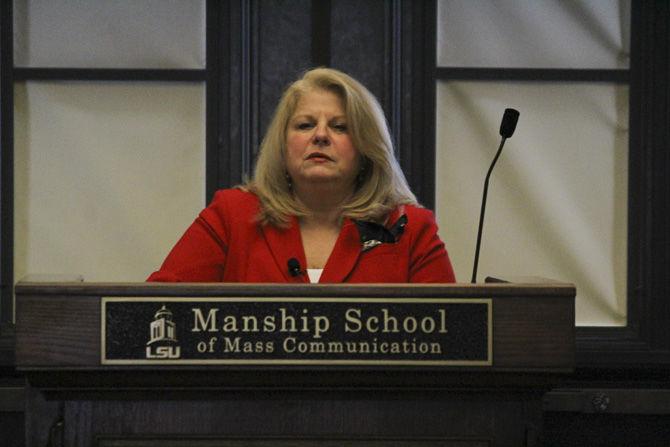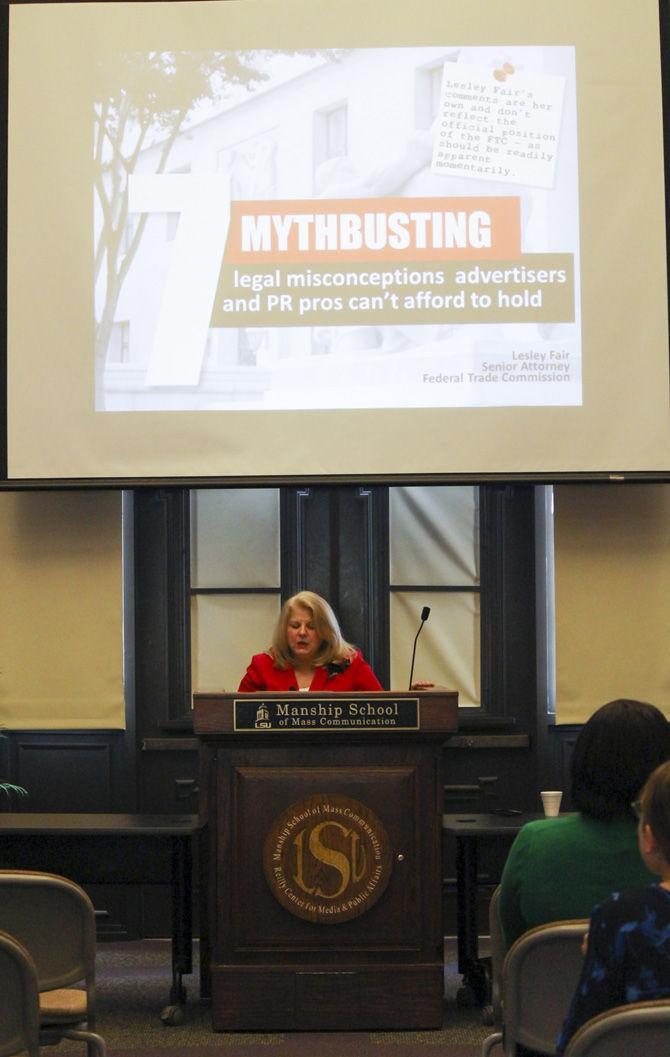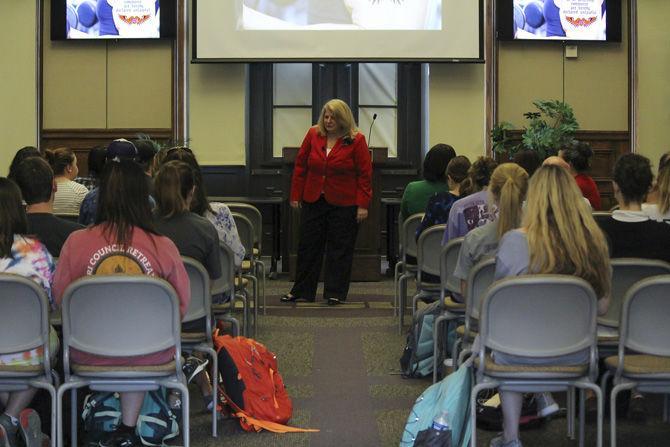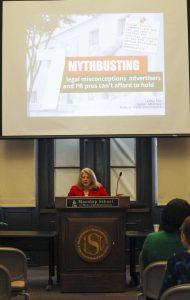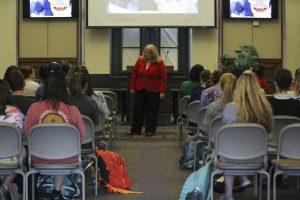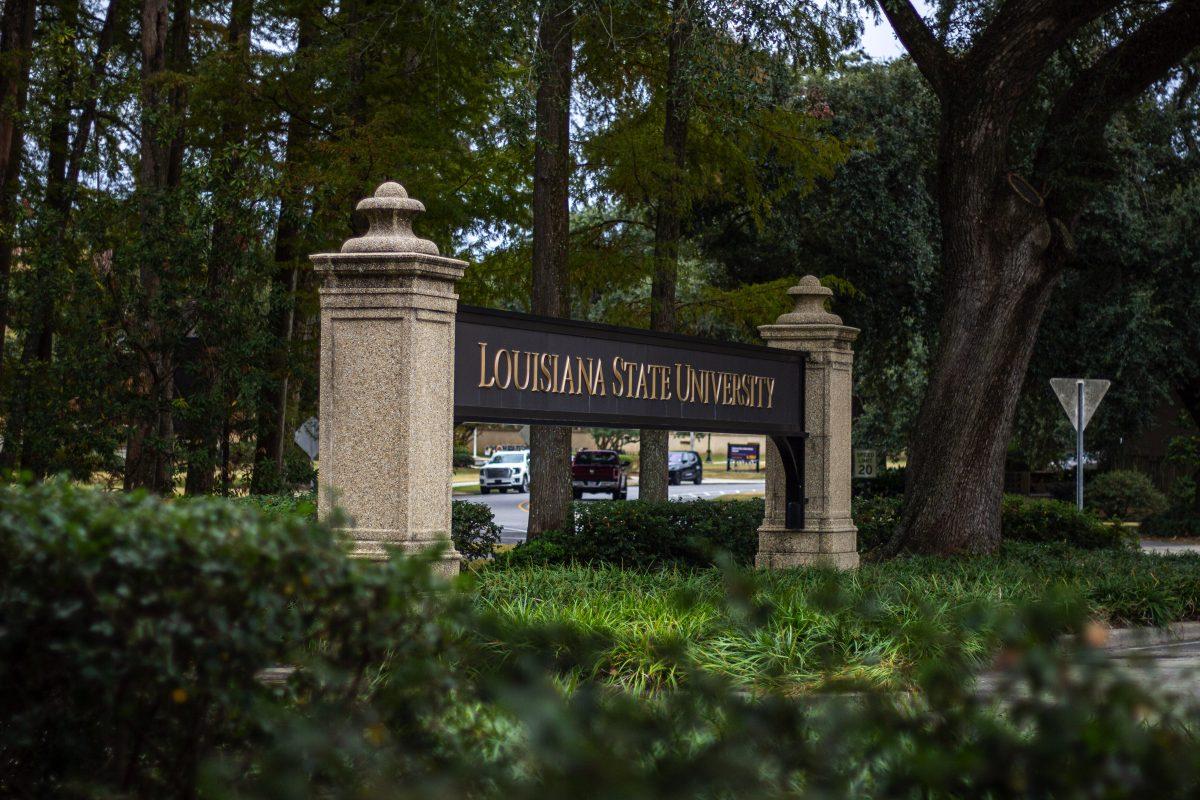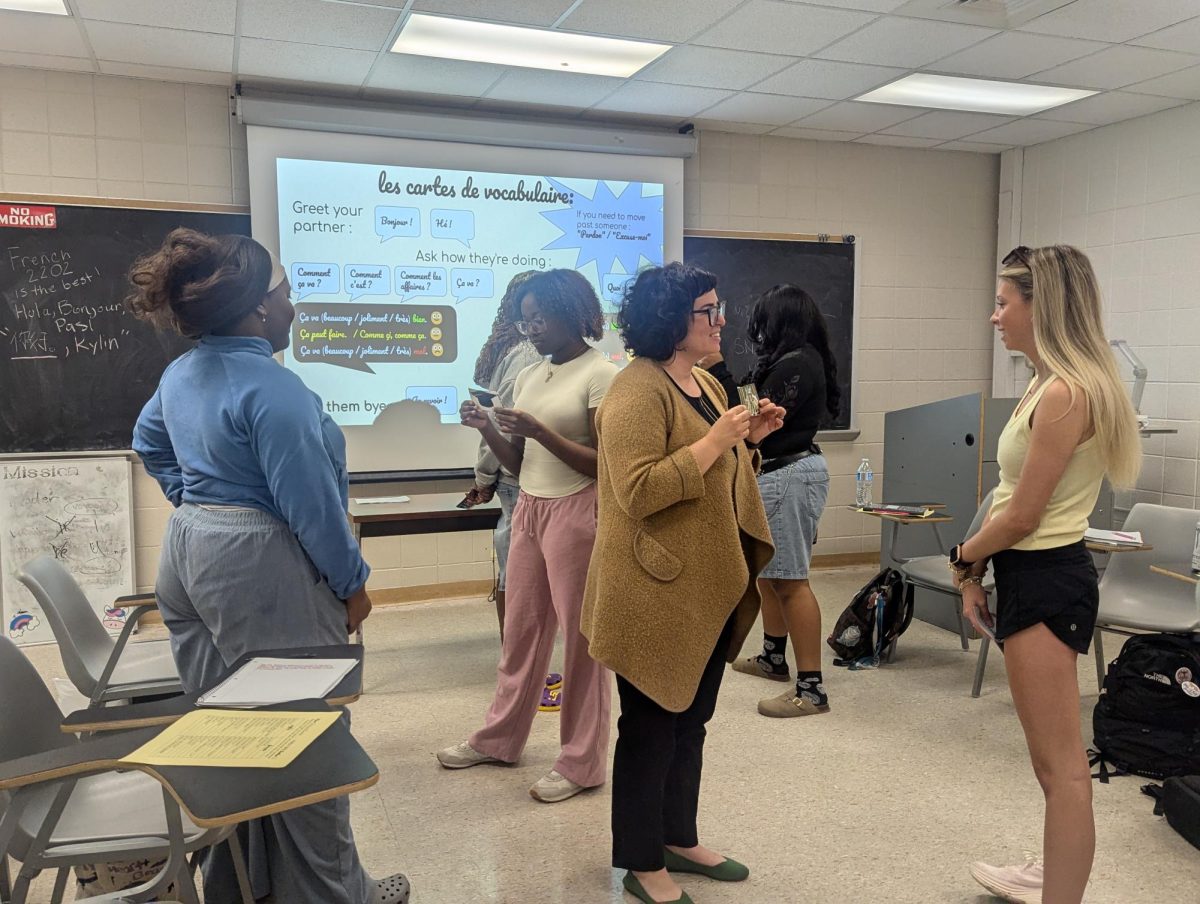When President Donald Trump’s senior adviser Kellyanne Conway wanted to defend the Trump administration’s claim that his inauguration saw the biggest crowd size in history, Conway insisted it was an “alternative fact.”
Lesley Fair, a senior attorney for the Federal Trade Commission’s Bureau for Consumer Protection, spoke in the Holliday Forum Wednesday about corporations and advertising companies that may try to use a defense similar to Conway’s when the FTC approaches them about an intentionally deceptive advertisement.
The FTC, as Fair pointed out during the forum, also stands for “for the consumer,” meaning the FTC’s primary focus is to protect consumers from deception, false advertising or “alternative facts.”
“We are the nation’s general consumer protection agency … [the FTC wants to make sure consumers] have a right to believe in the truthfulness of what advertisers are telling them,” Fair said.
Throughout the forum, Fair showed students and communications professionals examples of advertisements and claims made by advertising agencies or brands that violate the FTC’s statutes and have landed the companies in legal disputes. But Fair said she hopes this forum was the last time she ever had to meet any Manship students.
“I’m an advertising cop … don’t take this the wrong way … for both of our sakes … let’s not meet again because next time I, unfortunately, would have to suggest that the setting may not be as friendly,” Fair said.
Fair aimed to bust seven myths, or legal misconceptions, regarding deceptive advertisements she hoped attendees would not fall for as communications professionals: don’t think your claims don’t need to backed up by science or data and make advertising claims entirely clear, among others.
“I’m calling it myth busting … It’s those legal basics that you can use both to keep yourself out of legal difficulty and, most especially, to provide a useful service to your clients,” Fair said.
For example, Fair pointed out companies can still be held liable for advertisements produced by a separate advertising company.
This was shown in 1991 when the FTC won a lawsuit against Volvo for creating a commercial in which a monster truck crushed all cars except for the Volvo. In a normal scenario, a Volvo sold to a customer would have been crushed. But Volvo’s advertising company contracted a welder to enforce the roof of the car used in the commercial with wooden and steel beams, making the roof virtually indestructible. The FTC held that this was deceptive to consumers, and Volvo had to pay up.
Fair and the FTC want to prevent false advertising before it even happens, which was the ultimate goal of Wednesday’s talk.
FTC senior attorney Lesley Fair gives #AlternativeFacts talk in Holliday Forum
March 22, 2017
Lesley Fair, a senior attorney with the Federal Trade Commission’s Bureau of Consumer Protection, talks to students about legality in PR campaigns on Wednesday, March 22, 2017, in the Holliday Forum on campus.
More to Discover



